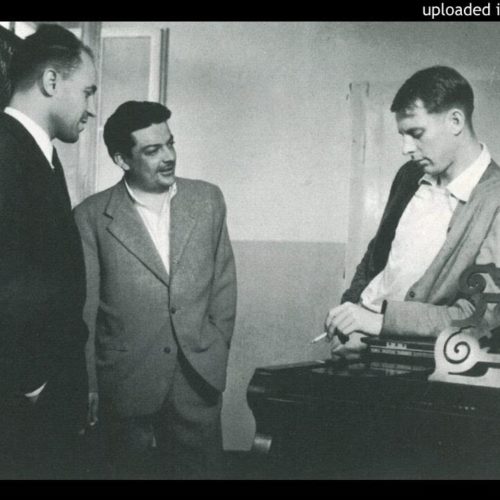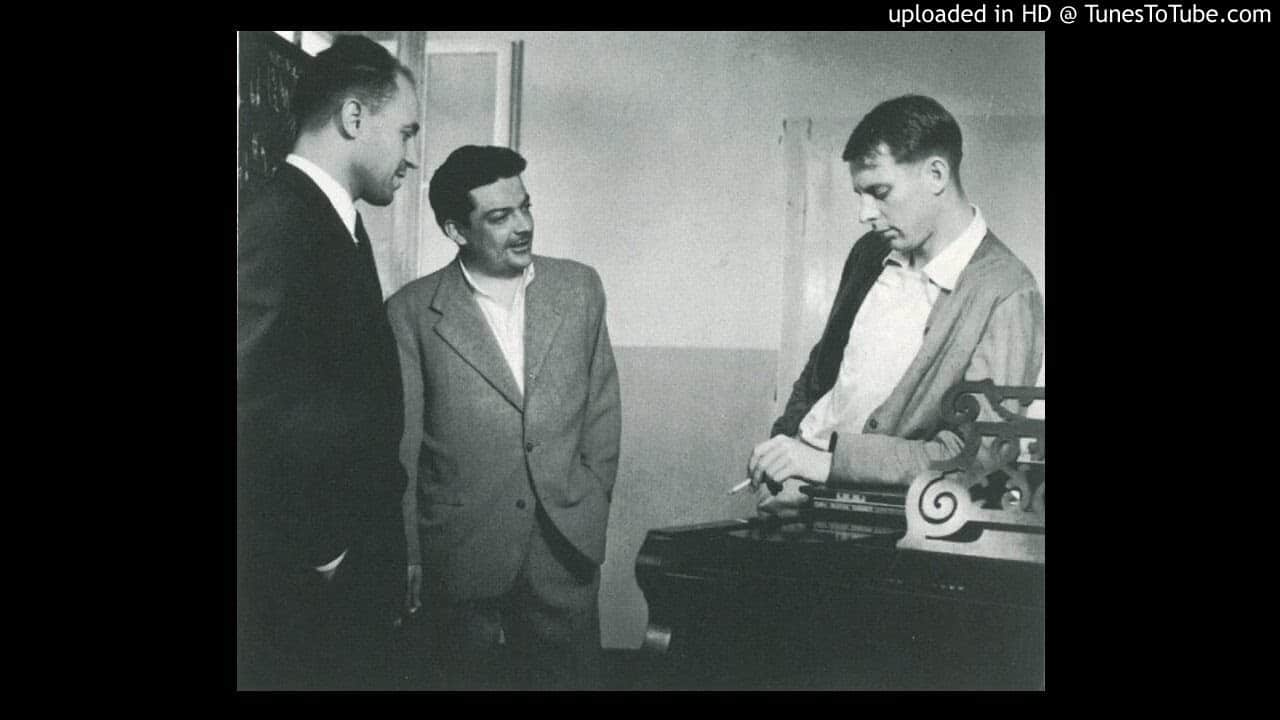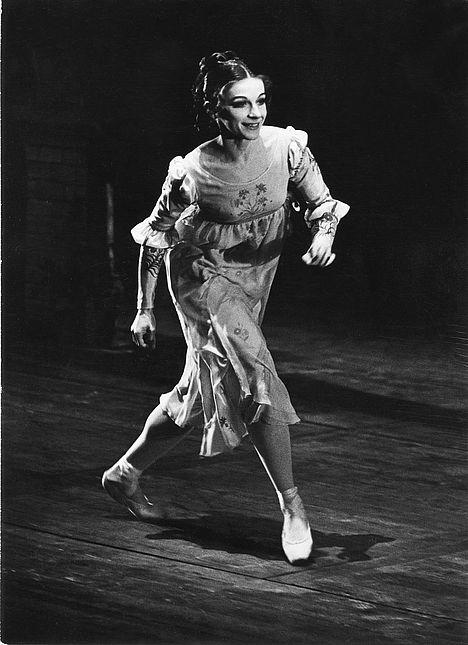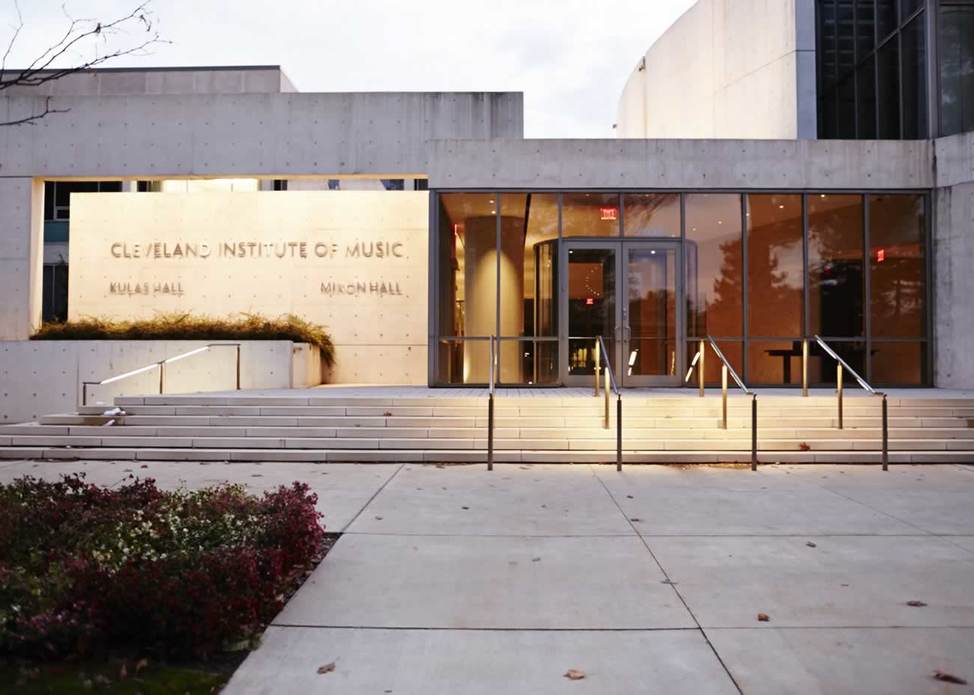Master of modernism would have been 100 today
mainWhen Bruno Maderna died in November 1973, modernists wept and Pierre Boulez wrote his most moving orchestral work.
Maderna, born 100 years ago today, was the smiling face of musical revolution, the tender heart. His death left the hardliners leaderless and portended the end of mainstream asceticism.
Adopted in Verona as an orphan at four years old, Maderna was a partisan in the Second World War and a rebel in post-War Italy. Aside from his success as a composer, he turned out to be one of the best conductors of complex modern scores. He co-directed the Concertgebouw in Amsterdam and was director of new music in Tanglewood.
Cancer took him at 53.
The Centro Studi Bruno Maderna at Bologna University writes: ‘Unfortunately, because of the “confinement”, we could not promote any public event on this occasion, as we had planned. … The scarcity of possibilities and “tools” is obvious: we count on everyone’s clemency… Bruno Maderna would have forgiven us, possibly with one of his famous laughs…’

Masters of modernism: Boulez, Maderna, Stockhausen






Rituel is one of the great works of the 20th C, in my humble opinion. I saw Boulez conduct it once, back in the 80s. Magnificent
Maderna’s live Mahler 9 (BBC Legends) is quite something….
yes! I had never loved this piece until I heard this Maderna cd
He didn’t write pieces that girls in red dresses can *easily* play, and more’s the pity in one sense, as it lessens their exposure. I might like beautiful female musicians, but Maderna speaks to me heart and soul, as do Ruders, Holmboe, Boulez, Schoenberg, Martinu, Enescu and so many other ‘difficult’ composers. Time in their company is time well spent
Good for you…… wholeheartedly recommended: keep an eye on health and neighbours.
Misspelling in the headline: it should say MADERNISM.
Isn’t it great that that period has passed into history, with all of its deeply neurotic confusion and pretentious posturing?
Boulez’ Rituel is – like most of his other works – very boring and in this case, even simplistic. One has to forget all existing music to be able to delve into its soundscape and filter-out some nice colour patters to be enjoyed.
Maderna may have been a good conductor of ‘complex modernist works’ but who knows? What is a good conductor of, say, Boulez’ Marteau sans Maitre, which goes for a representative complexity aesthetic? The only way to asses such thing, is checking a live performance with the score, but who takes the trouble? And then, in ‘complex modernist works’ you cannot play wrong notes because the notes don’t matter very much, they are mere pitches for colour’s sake. The best a conductor can do in such works, is to be alert enough to give the right entrances and keep the illusion of ‘tempo’ intact.
https://www.youtube.com/watch?v=7JIAVneYYoM
I once saw Maderna conducting Beethoven IX (it’s true!) and he had his nose deeply buried in the score – he apparently did not know the piece and it sounded entirely ‘dead’, the music got turned into ‘pure sound’. Such people think that music IS pure sound….. instead of sound as a vehicle for the inner landscape of the music.
It is about time that people begin to understand the degree of empty pretentions and nonsense in that whole postwar ‘new music’ field… with its nonsensical idea that music should be cleansed of those subjective projections and turned into something ‘objective’.
Bore-slap laments displays of “empty pretentions and nonsense”
Um…he is beyond parody.
I feel very privileged to have been at what was probably Maderna’s last concert: Festival Hall, Nov 5th 1973, BBCSO, Brendel: Haydn Sonata in C minor, Bartok Piano Concerto No 1, Haydn Sonata in E flat, Schoenberg Piano Concerto. An unforgettable evening; Brendel was tireless and superb whilst Maderna, who was known to be seriously ill, looked like death warmed up and was dead less than a fortnight later gave his all and was clearly loved by the orchestra and audience. A great composer and conductor and it’s wonderful that so many of his performances are appearing on youtube.
I don’t agree with the way you generalize about the musical abilities of performers who became primarily famous as champions of modern music.
While I don’t have an opinion on Maderna as a conductor, and was no fan of Boulez as a conductor (or composer, but that’s another matter), I find a lot to like in Scherchen’s recordings of Bach, or in Reinbert de Leeuw’s piano recordings of tonal music. Maybe Scherchen and de Leeuw are exceptions, but by no means the only ones.
Scherchen was a brilliant conductor anyway, and prepared to give modernism a chance at the time of its first emerging. De Leeuw could only conduct works which don’t require musical abilities. I once attended his performance of Schoenberg’s ‘Pierrot Lunaire’ which turned the music into ‘objective sound patterns’ – missing the point entirely. Also I know from players who had worked under him how he lacked musical understanding and technique. A conducting bout at a Parisian orchestra which included traditional pieces was a disaster, according what a horn player in the orchestra said afterwards, they saw right through the pretense because they could compare with real conductors. Etc. etc….
The point is that there is a difference between a musical tradition and a Klangkunst tradition, they require very different abilities from its practitioners. But the two things are often totally confused.
For instance, Boulez understood ALL music as sound art, hence his attempted ‘precision’, but lack of subjectivism. His conducting of sound art was always OK.